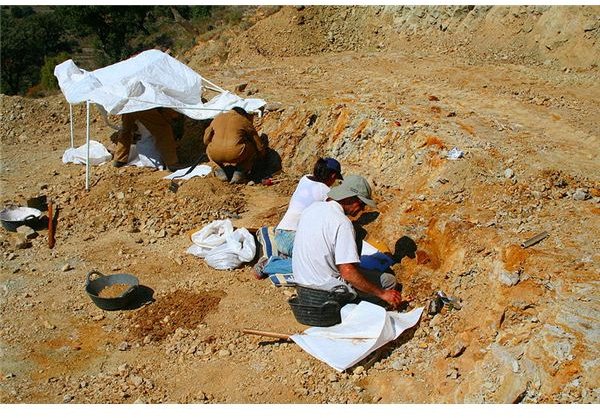Considering Careers in Paleontology - A Guide for Preparations and Options
Brief Overview about Paleontology
A common misconception about paleontology is that it mainly deals with the study of dinosaurs. Paleontology is actually a broad subject matter pertaining to studies of life forms and how they evolved from their very first beginnings. This could date as far back as hundreds of millions to billions of years ago, based on fossils dug by researchers in known fossil sites. Fossils, which are the preserved remains of living organisms like animals, plants, bacteria, fungi or any single-celled organisms often found trapped and buried beneath the Earth, are the geological records that can connect the past to the present. In the petroleum industry, fossils are sources of fuel.

Dinosaurs are only one of the known species that existed during pre-historic times and they are themselves, evolutions of earlier living creatures. Previous studies have unearthed evidences that the earliest living organisms were marine creatures, and that the world we live in was said to be just a single continent surrounded by a vast body of water. In general, paleontology is all about evolutionary biology and for those who wish to pursue this career, the following information can serve as your guide on how, what and where to build careers in paleontology.
How to Prepare and What Preparations to Make for a Future Career in Paleontology?
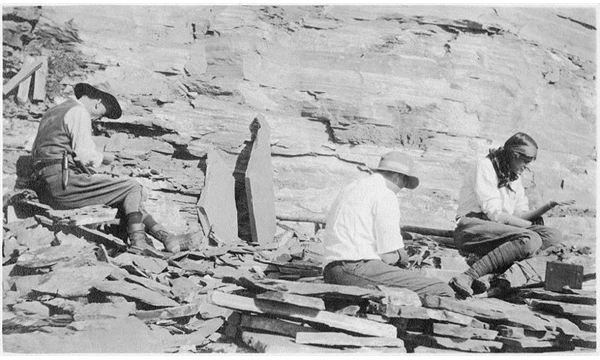
First off, take away the notion that the job is all about looking for dinosaur remains, lest you get derailed by wrong expectations. If you are still in your high school year, it would be best if you apply full concentration on your science and math subjects. You may be able to find jobs related to paleontological expeditions and field work, as long as you have the patience, the curiosity, the imagination and most of all, the analytical mind in studying fossils and in learning how to determine the time period they belong to.
However, if you’re aiming to land some high-paying jobs as a paleontologist, it would be to your advantage to prepare as early as high school. You have to manifest your aptitude and knowledge in science and math subjects through your overall high school grades. Universities and colleges usually require GPA’s between 3.00 to 3.50, or better in all science subjects.
Nonetheless, there are about 2,953 universities and colleges offering course work that leads to a paleontology career but only a few universities offer the programs that will earn you a diploma in paleontology as a degree. It would be best therefore, if you will be discerning with your choice of an educational institution. The top three universities named in the 2010 US News and World Reports as the highest rating educational institution when it comes to paleontology programs are Yale University – Dept. of Geology and Geophysics, University of Chicago - Dept. of Geophysical Sciences and University of California – Berkeley, Dept. of Earth and Planetary Science.
Seek out recommendations on where you can get the best science education, particularly biology and geology curricula. As a future professional paleontologist, you will choose a major area of concentration either in geology or biology. However, successful professionals in the field, recommend a double major if possible. If not, decide on one, let’s say geology, and then take up additional courses to enhance your knowledge regarding biology, or vice versa.
Math and computer skills will likewise prove to be essential, inasmuch as statistical analysis is an absolute requirement in paleontology work. There will also be reading requirements that involve foreign languages like Russian, German or French and others that are known in the academic world as modern languages. These courses are usually offered in graduate schools, but based on the experiences of those who were able to advance well ahead, taking them up during undergraduate years will give you more opportunity to hone your skills at an earlier stage.
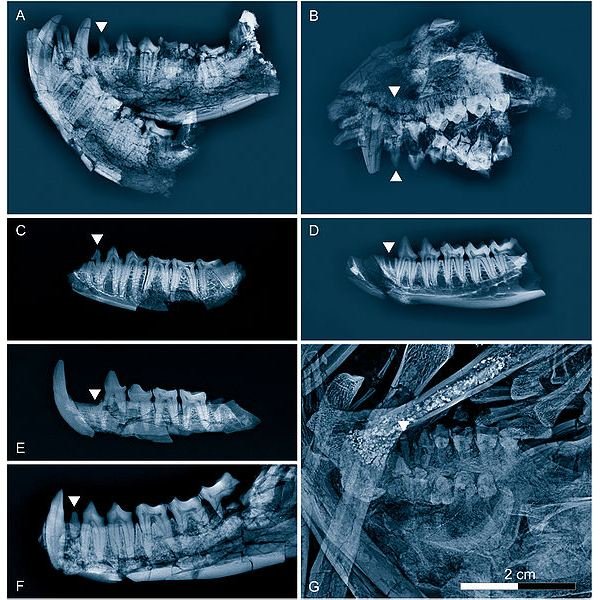
Make the most out of your field work experiences by venturing into research work as early as you can. Look for volunteer opportunities in local museums, in your state or local geological offices or checkout paleontological organizations and institutions like the Paleontological Research Institute (PRI) and Paleoportal.org. These aforementioned offices as well as the United States Geological Survey (USGS) can furnish you with resources on where to find fossil sites nearest your location.
In addition, research the net, the bookstore of a natural history museum or you local library about published guidebooks about fossil sites and the types of fossils existing in said areas. These materials will come in handy in case you intend to make independent research projects.
Please proceed to the next page for information about the career outlook in paleontology and where to look for related work opportunities.
Career Outlook in Paleontology
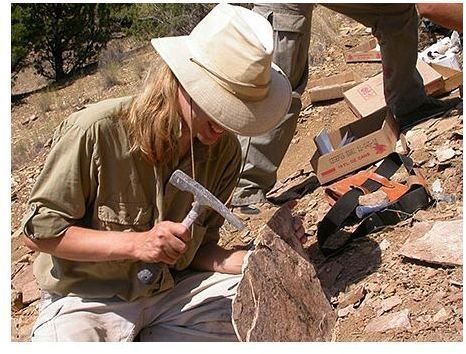
All the preparations mentioned for careers in paleontology may seem like hard work, for what others may think as having limited job opportunities. On the contrary, aside from careers in academic research, professorial jobs or as museum curators, there are avenues you can explore to find work as a paleontologist, where your knowledge about fossils, microorganisms and life sciences can be harnessed.
A holder of paleontology degree, who majored in geology courses, has the potential to land high paying jobs in oil companies either as an industrial paleontologist, geologist or geoscientist. A lot of women paleontologists in the mid-1900s occupied important positions in oil companies, where they became instrumental in oil field discoveries and core materials analysis (Source: Women of Science). Some of them, later went back to their home bases and set-up their own paleontology laboratories, perhaps to fulfill their original desire to learn about life evolutions.
Although the outlook in paleontology careers had taken a new facet in the 21st century, as the recent demand to replace fossil fuel with cleaner source of energy has affected the demand for fossil site exploration researchers in this sector. Nevertheless, industry forecasters still expect that fossil fuels will still remain as the main source of energy in the coming 60 to 80 years.
On the other hand, those who majored in biology also have the potential to join research teams for product researches, where thorough knowledge of living organisms, particularly micro-organisms is considered as essential tools in understanding the whole life process from its beginning to extinction and evolutions.
Where to Look for Careers in Paleontology and Related Occupations to Paleontology
Below is information about different careers in paleontology or other related occupations to paleontology, wherein some of them will depend on your major concentration of learning.
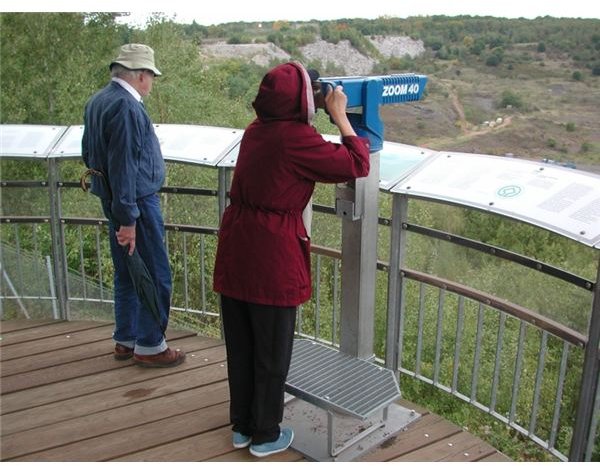
(1) Geoscientists
A geoscientist studies the Earth’s geologic composition, its history, how layers were formed and what happened during their formation. Paleontologists with superior mastery of geological principles about rock, soil and water formations and their relation to the present day environment as well as knowledge in the use of geologic equipment and ability to interpret computer generated geological information, have high potentials of occupying the top paying jobs as Geoscientists.
The National Salary Data as of July 24, 2010, for Geoscientists indicates an Annual Base Pay range of $46,363 to $108,091 in the forms of salaries and bonuses. The current popular employers are Tetra Tech, Inc., Shell Oil Company and ExxonMobil Exploration Company.
Top industries in need of Geoscientists and their salary range are:
- Oil & Gas Explorations - $55,969 to $102,498
- Oil & Gas - $52,737 to $94,580
- Engineering Consulting firms - $49,573 to $86,732
- Geological Exploration Services - $47,789 to $82,201
- Environmental Consulting firms - $46,749 to $81,790
Graduates of different Bachelor’s of Science Degrees in related fields compete well in seeking employment in these industries while those with a Master’s in Science Degree in Geology, are the leading contenders. Most popular entry levels for this position are those with previous work experiences as Environmental Scientists or Specialists.
(2) Historic Sites Administrator for Museums
National Salary Data discloses an annual base salary ranging from $29,450 to $60,652 while work opportunities as Teachers in Museums have Annual Base Pay of $21,071 to $31,925. The latter can have alternative employment in K-12 Educational Institutes.
(3) Academic Research Scientists
An Academic Research Scientist usually possesses a Master’s Degree or Ph.D in Science where he or she also occupies a position as Dean or Head of Science Departments in universities and colleges. Most Research Scientists who found work in academic institutions earn salaries that range from $55,965 to $79,447.
However, there’s a scattering of different paleontology careers all across the U.S. and you can find most of them through paleontology societal organizations. As example and additional guide about the various work opportunities where you can build your career in paleontology, here’s a job listing provided by the Vertpaleo.Org to their members under Member Resources: Jobs and Funding.
Reference Materials and Image Credits Section
Reference Materials:
- https://grad-schools.usnews.rankingsandreviews.com/best-graduate-schools/top-earth-sciences-schools/paleontology
- https://www.cartage.org.lb/en/themes/sciences/Paleontology/AboutPaleontology/FrequentlyAskedQuestions/FrequentlyAskedQuestions.htm
- https://www.paleoportal.org
- https://www.payscale.com/research/US/Job=Geoscientist_(but_not_Hydrologist_or_Geographer)/Salary
- https://www.priweb.org/ed/lol/careers.html
- https://www.vertpaleo.org/membership/jobs.cfm
- Women of Science: Righting the Record- https://books.google.com.ph/books?id=Ez7DCJM57esC&pg=PA63&lpg=PA63&dq=noted+paleontologist+who+worked+for+oil+companies&source=bl&ots=ISzBn06E9x&sig=buBn_cqHhL68e7zEe2jAyiaCQPA&hl=en&ei=G1RXTL6AE8PIcaaZ5L8M&sa=X&oi=book_result&ct=result&resnum=3&ved=0CB8Q6AEwAg#v=onepage&q=noted%20paleontologist%20who%20worked%20for%20oil%20companies&f=false
Image Credits: Wikimedia Commons
